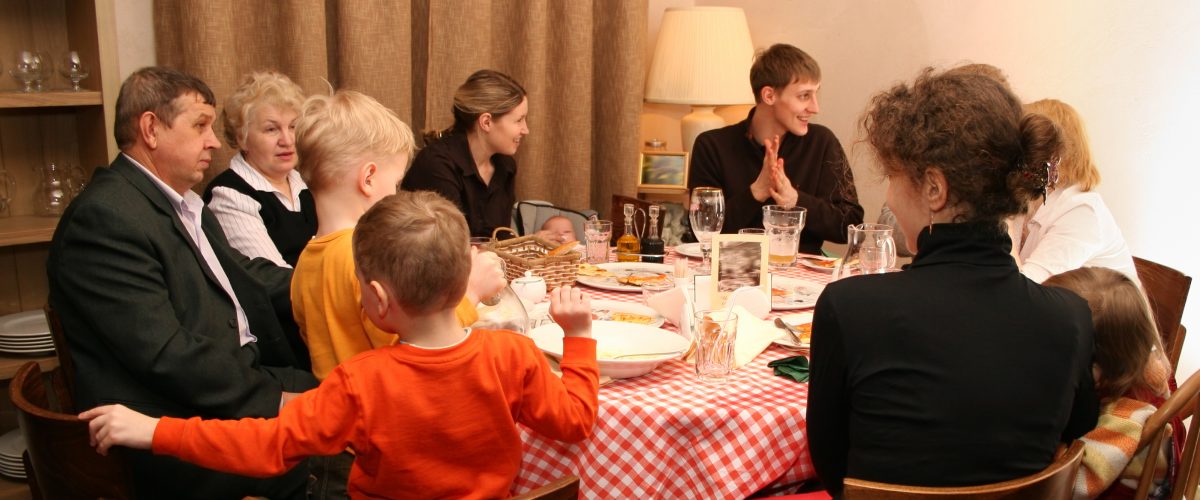
The holidays are a time of stress for many people–so much to do in so little time. Then there's the stress of socializing when you have aphasia. Here are some easy ways to help without being obvious about it:
- Have a paper and pen on you–just a little memo book.Write down key words during conversation. This helps with comprehension and also acts as way for you to clarify that you've understood. This is also helpful for speaking so that a word or part of a word can be written by the person with aphasia when speech isn't working. If you incorporate this into your conversation naturally, others will do the same.
- Take a timeout when needed. People with aphasia can get tired from concentrating on understanding. It's similar to the fatigue of concentrating to understand a movie in a language you aren't fluent in or with heavily accented speech. You have to concentrate to understand where each word begins and ends, then you have to remember the words to understand the sentence and its meaning. This makes your brain tired.
- Decrease your rate of speech slightly and use gestures while you talk. Most people with aphasia cannot understand 'wh' questions (who, what, where etc), so they may need more clues about what you're asking. "Is Mary here?" is much easier than "Who is here with you?"
- When your loved one needs to make choices, present only 2-3 choices at a time and write them down. For example, asking "would you like tea, coffee or water?" when it's written is a much shorter and more independent version of "do you want a coke?", "no", "do you want tea?" etc. Memory is not the problem–word access is
- Have some pre-written cards if needed. These can contain names, tv shows, or other topics may want to talk about. This saves some of the difficulty with word retrieval, but also provides a topic base for the listener. If nothing else, the speaker can point to a word.
- Be conscious of your help. No one wants to look different or disabled in front of others. If food needs to be cut to prevent choking, try to cut it in kitchen before serving. Model the techniques and strategies you'd like others to use. This isn't therapy time, so don't make someone repeat you. The goal is interaction, not perfection.
